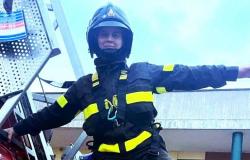In May 2023, a series of devastating floods hit the Romagna causing very serious damage to entire communities. In response to this calamity, not only institutions, companies and associations took action but also many individual citizens. Among the many stories, that of a Powerful woman cannot fail to be celebrated, Claudia Ricci, translator and interpreter accredited by EU institutions and contact person for Italy for Calliope interpreters. Claudia has always been an active woman in the world of volunteering and, for example, she joined the first local projects to welcome refugees. Following the flood, without thinking for a moment, she threw herself headlong into helping her territory and its inhabitants.
Origins of a solidarity initiative
Claudia often finds herself abroad for work – usually in Brussels or Strasbourg – but on 16 May 2023 she was working in her home region. “While I was working I was worried about the weather. That same evening, the situation escalated rapidly and many neighborhoods of various towns in Romagna were destroyed. My house was miraculously spared because it sits on top of a hill. In the San Rocco neighborhood, where I grew up and where many of my friends still live, the situation was disastrous” recalls Claudia. In the following days, she didn’t just observe: despite physical problems that prevented her from lifting heavy objects, she found a way to contribute. “I couldn’t carry weights because of a carpal tunnel and elbow problem, but I could still help in other ways.”
On May 18, as the city of Cesena began to organize itself, Claudia made a decision: “I saw many people wearing overalls and boots in front of my house to go and provide their contribution and I decided to join them to do what I could“. So she started preparing thermoses full of hot drinks to distribute and helping the other volunteers to empty and clean the houses, starting with that of a friend.
From the need for immediate help to the solidarity network
Looking around the San Rocco neighbourhood, Claudia realized that by using social media she could broaden the effect of her actions. “I started taking photos and videos, posting them online. I had the perception that many of my colleagues in Brussels and friends abroad did not realize how serious the situation was, that they thought that the damage was more limited and that the flooding had only affected cellars and garages when, in fact, to be entire apartments were submerged.”
The response was surprisingly positive and the echo of the news made it possible to start a fundraiser, “thinking we were only helping the people we knew” Claudia explains to us. “Instead, the collection grew beyond all expectations: the collection started on Tuesday, by Friday we already had the necessary funds available to allow people to buy back part of what they had lost and to resolve some situations that we learned about through word of mouth” , all while continuing to give one’s support as a volunteer also through the spontaneous groups created on Telegram such as SOS Cesena or SOS Romagna. Initially his goal was simply help the people of Cesena, but the initiative soon gained momentum, extending to other locations affected by natural disasters such as landslides and tornadoes.
Read also: Lamantera, the powerful history of wool Made in the Apennines
A house emptied of mud is an empty house
The work of Claudia and the many volunteers who arrived from all over Italy (and beyond) was certainly not easy and, even today, she sees many challenges ahead of her to face. The houses, once emptied of water and mud, were empty – often still damp – and ghostly. Many citizens had to start living again without furniture or other essential goods, with a void that weighed not only on their homes, but also on the souls of those who had suffered the violence of the flood.
There were those who, unable to buy back what they had lost, posted requests for essential goods such as a simple mattress in local social groups. At the same time, perhaps in other groups, there were those who published ads to get rid of the same good that was no longer needed. Hence Claudia’s rush to try to put people in contact, rummaging through the various social adverts and trying to match the demand of those who had lost everything (or almost everything) with the offer of those who, instead, were willing to donate trying to organize, where necessary, also delivery and relay services, recovering vehicles and volunteers to provide for the transport and assembly of the furniture.
Read the article: Between bees and dissemination, the story of the agricultural entrepreneur Federica Lops
How “the Borsino dell’Alluvione” was born
In that period, Claudia wasn’t the only one trying to bring together needs and availability. Among those who carried out the same voluntary activity there was Antonella Marcori. It was his idea to open a specific group. Claudia took just the time on the short flight to Brussels to evaluate the idea and, a few minutes after landing, she opened the community, with Antonella and herself as administrators. The Bag of the Flood initially it had the aim of ensuring that people self-organise, publish requests and offers but also manage the delivery method themselves. However, what was supposed to be a tool dedicated to the small local community of Cesena has gradually expanded its range of action.
“The initial goal was facilitate direct contact between those offering help and those in need“. Faced with the evidence that people often had no way of going and picking up (and perhaps reassembling) furniture on their own, volunteering ended up addressing new needs. “The network made it possible to mobilize people from all over Italy. Many people, for months, have dedicated their free time to deliveries and many have used their own vehicles (or rented them at their own expense), also paying the motorway toll and fuel out of their own pockets and have made spaces and skills”.
The coordination work was not easy because, as Claudia explains, “there were days in which I spent 15 hours behind Borsino because each situation was different and required a specific intervention, but also to moderate the participants’ minds, explain the principles that animate the community and always make trying to bring help to others prevail”.
From furniture to basic necessities
If the first problem to solve was to refurnish the houses affected by the flood, little by little various forms of support arrived from the group, including for basic necessities or objects of daily use.
“If in this way it is possible to prevent a person from throwing away objects that they would get rid of anyway and, on the other hand, savings are ensured for those who still have to face many expenses to fix up the house or to pay the mortgage on the house in which he cannot return and the rent of the one where he temporarily lives, we are still helping those who were affected by the calamitous event” Claudia clarifies, also explaining the evolution of the 2.0 community.
Thus, even if dated (provided they are in good condition), several objects have found a second home that would normally have been discarded and which, instead, have been recovered and reused, demonstrating the effectiveness of careful resource management in crisis scenarios. “Bedside tables and wardrobes made of excellent wood but aesthetically ruined have in some cases been the subject of a change of look thanks to those who repainted or even repaired them”.
Another very frequent problem – Claudia Ricci explained to us – was linked to the fact that many people returned to apartments whose walls were still soaked in humidity. Power temporarily use furniture that would have been thrown away anyway it allowed the occupants of these homes to have useful furniture, without having to buy new furniture given that, in any case, until the walls had dried (and it would have taken months!), every piece of furniture would have been destined to rot and don’t last long.
Powerful to the core
One year later, Borsino continues to be of help and not only in the areas affected by the floods of May 2023. Today support is offered in those places affected by disasters such as earthquakes, landslides and floods giving back solidarity with territories from which many volunteers who flocked to Romagna in 2023 come. Borsino and Claudia’s commitment have demonstrated how, even in the absence of significant financial resources, commitment and creativity can make the difference in the lives of people affected by disasters. His initiative not only brought material relief to those in need, but also strengthened community spirit, proving that, even in the most difficult circumstances, humanity can find ways to overcome adversity together. Despite the tiredness and difficulties, his answer to the question “would you do it again?” it was a resolute “yes” because people like Claudia Ricci are powerful in their soul and heart, to the core.
Read the article: Reuse that leaves no one behind: the powerful history of the Albergheria in Palermo
© All rights reserved







